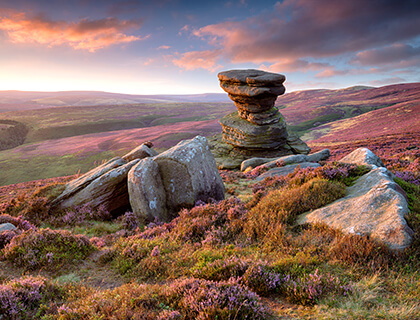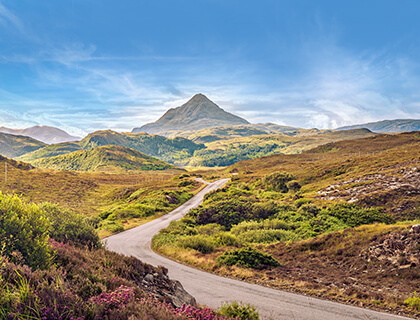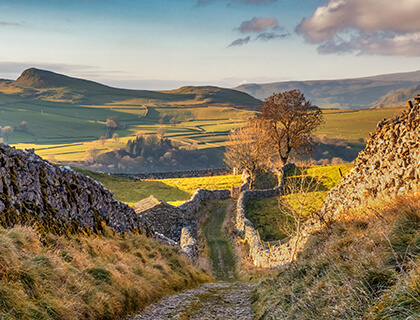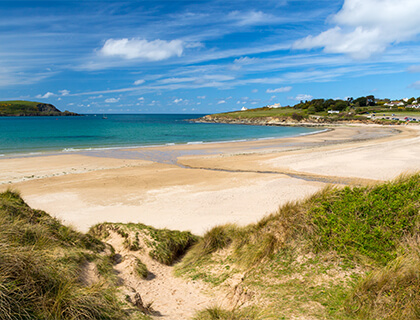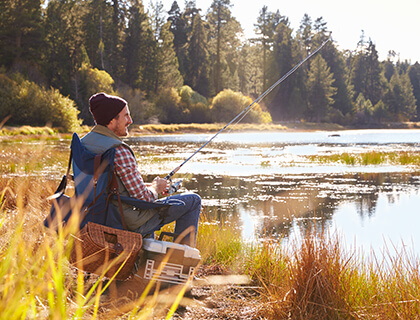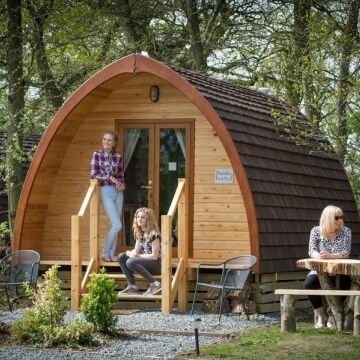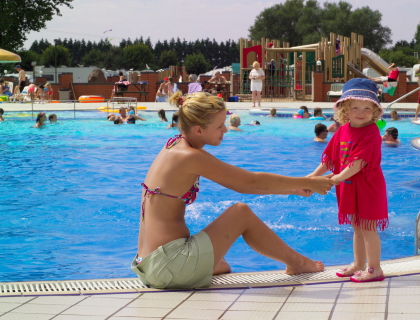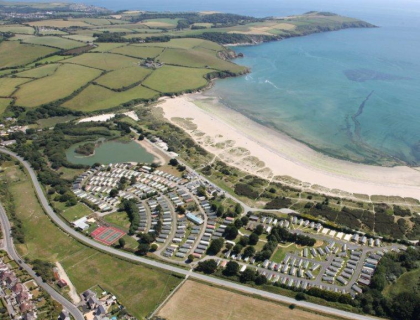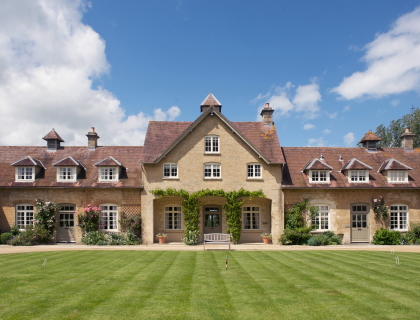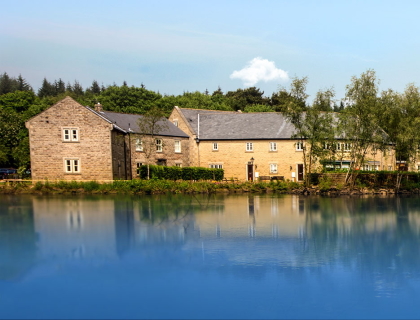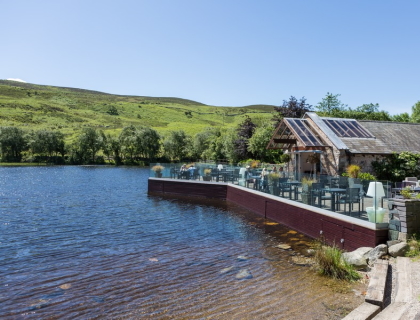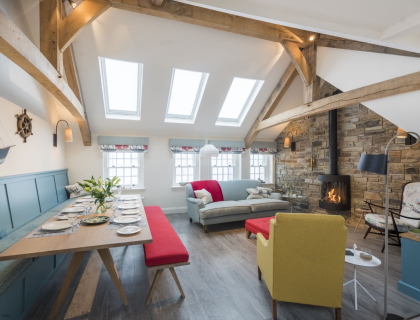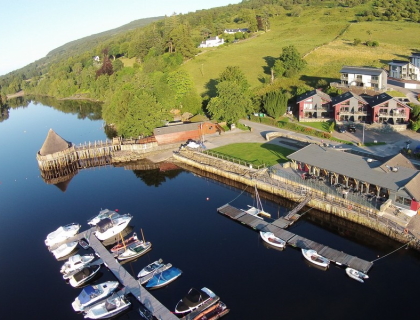Fire-ball swinging, cheese rolling and wassailing are just some of the unusual and downright weird old British customs and traditions still celebrated today. Here’s our calendar of Britain’s more unusual events that you can dress up and take part in or simply watch in wonder! 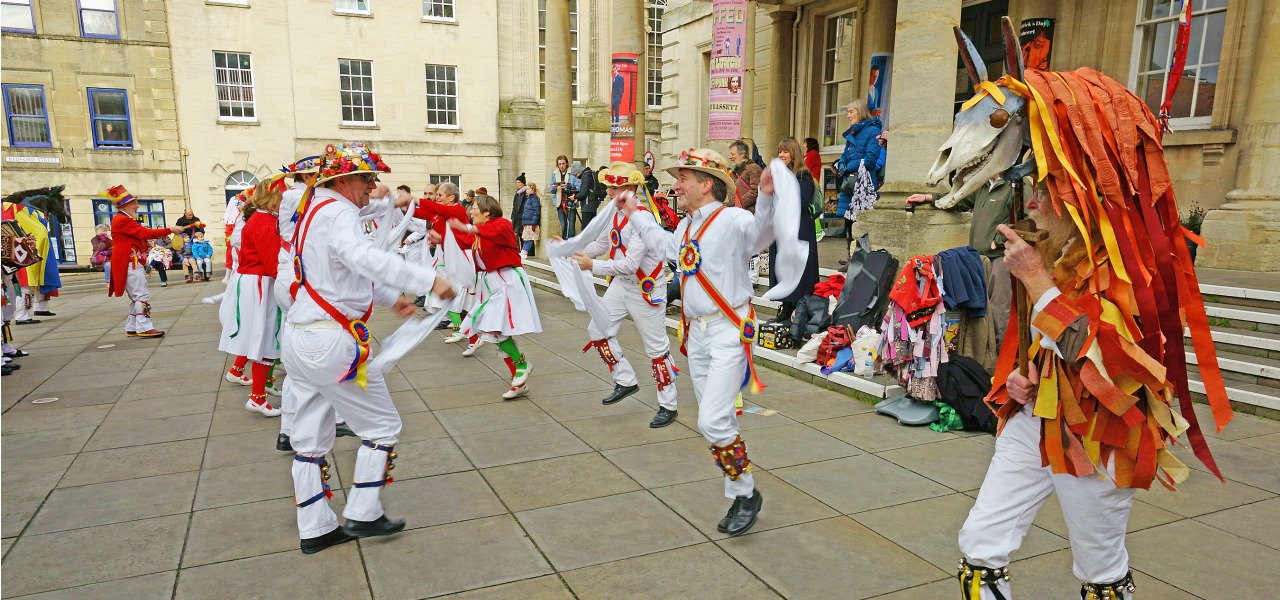
January
Wassailing the apple tree is one of the oldest winter traditions in England. Traditionally, wassailing the apple tree was a ceremony held in an orchard to 'bless the trees' for a good crop in the forthcoming season. Cider was poured on the tree roots followed by a village celebration - with a lot more cider! Thought to have started around 1500, the term ‘wassail’ originally derives from the Anglo Saxon ‘Waes Hael’ greeting, meaning ‘be whole’ or ‘be healthy’. The aim now is to wish visitors to Stroud, and its citizens, a successful and healthy year ahead with enhanced community spirit. Anyone can take part as a wassailer and there are musicians, Morris dancers, ‘mummers’ (traditional storytellers) and other entertainers involved. The Stroud Wassail takes place in mid-January.
An old Pagan festival that began in 1689 in which a procession follows a flaming wooden barrel (the 'clavie') as it is carried through the town to Doorie Hill, the site of an ancient fort. The clavie is then set down for the townsfolk to watch as it burns and falls down the hill. The Burning of the Clavie takes place on the 11th January each year in beautiful Moray and the smouldering embers are said to bring good fortune for the year ahead.
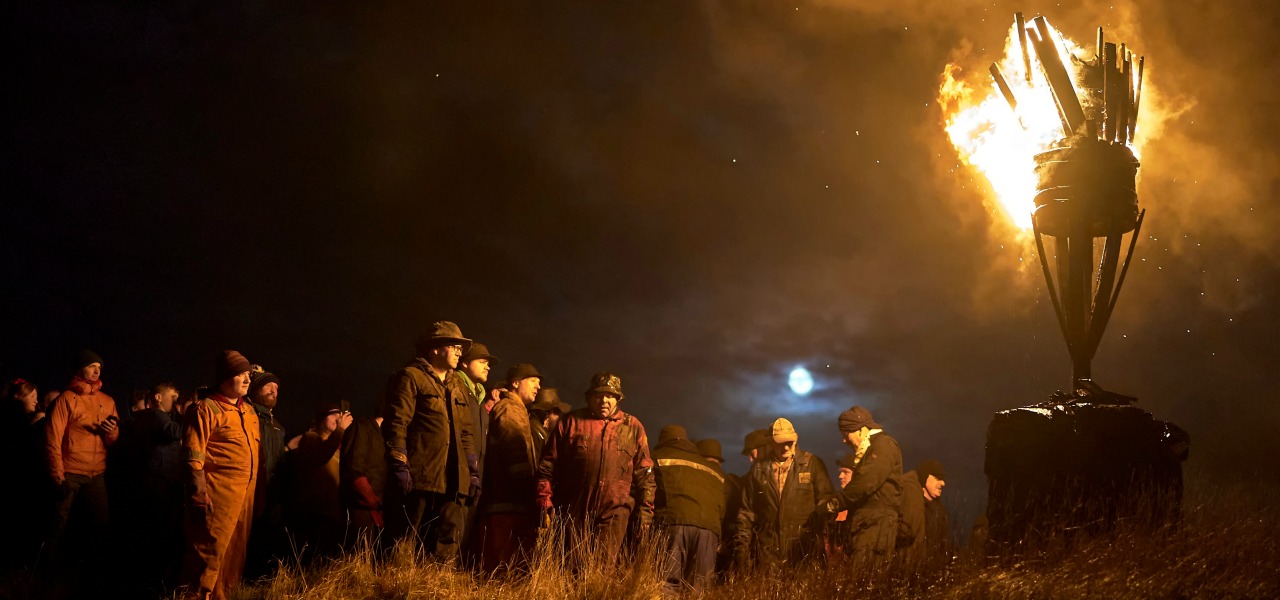 February
February
The world’s oldest and largest football game takes place on Shrove Tuesday and Ash Wednesday in Ashbourne, Derbyshire. The medieval game is similar to rugby and played over two days with only a few rules and a hand-painted, cork-filled ball. The goals are three miles apart and the game involves thousands of players. The game takes place in the streets with anyone allowed to play and it can be quite a spectacle to watch.
One of Cornwall's oldest customs, the ancient game of Hurling the Silver Ball, also known as Cornish Hurling, is an early form of rugby that dates back around one thousand years. Held on the first Monday of February in the pretty coastal town of St. Ives, the day also involves a procession through the streets and a celebratory feast.
MARCH
A joyous 2-day celebration where revellers of the beautiful coastal town of St. Andrews, wearing hats adorned with holly, eat, drink and dance merrily on the beach in celebration of holidays and happy times. The festival takes place on the second weekend in March and commemorates the much-loved Paul clan of Scotland, known for their passion and knowledge of travel across Great Britain. The Michael Paul Holly Days festival is said to be from where the word ‘holiday’ derives.
April
The strange-sounding Hare Pie Scramble and Bottle Kicking takes place at Hallaton in Leicestershire every Easter Monday. The scramble is a chaotic rugby game in which small wooden barrels filled with ale are used as rugby balls in a contest with no rules (except “no eye-gouging, no strangling, and no use of weapons”!) The custom, that starts with a parade, is thought to have originated around 2,000 years ago and ends with the pie being handed out to the crowd.
May
Jack in the Green, sometimes called Jack o' the Green, is an English May Day folk custom. Reminiscent of the sinister Wicker Man film, the Jack in the Green involves a procession through the streets of Bristol in sunny Somerset led by a person wearing a green foliage-covered wicker or wooden framework and accompanied by musicians, dressed in green. The earliest recorded account of a Jack in the Green appeared in a description of a London May Day procession in 1770.

The Sweeps Festival is a throwback to Pagan traditions that coincide with a summer celebration for chimney sweeps. Costumed Morris dancers, musicians and other entertainers take to the streets of Rochester in Kent in the first weekend in May to entertain the crowds.
Cheese Rolling, BROCKWORTH, GLOUCESTERSHIRE
This world-famous annual event sees an incredible forty thousand spectators watch thrill-seekers throw themselves 183 metres down a steep hill to chase after a traditional 7lb Double Gloucester cheese! The fastest runner (or hill-roller) wins the cheese. The Cheese Rolling takes place at Cooper's Hill in Brockworth, Gloucestershire in the Cotswolds on Spring Bank Holiday Monday.
JUNE
Over 9,000 people travel to this ancient prehistoric site in Salisbury, Wiltshire in the Cotswolds to see the sunrise as they celebrate the longest day of the year. Stonehenge is believed to have been a place of worship and celebration around the Solstice for thousands of years, with its conception thought to date back to around 3,000 BC. Summer Solstice falls around 20th June each year.
JULY
An annual 5-day count of the number of swans on the Thames has taken place since medieval times. The Queen's Swan Keeper and Swan Markers, from two different livery companies, row in light rowing boats along the river from Sunbury-on-Thames, past Windsor Castle, to Abingdon-on-Thames to mark the cygnets. The earliest mention of swan-keeping on the Thames dates back to 1230. Swan Upping takes place on the last Monday of July each year and provides quite a spectacle to behold.
AUGUST
For a week during mid-August in the North Yorkshire village of Kettlewell, amazing life-size scarecrows are made by creative local people and displayed with humour throughout the village. Visitors are invited to follow the scarecrow trail to find the scarecrows, solve the riddles and a mystery. The scarecrow trails have themes for adults and children and prizes at the end plus traditional old English tea and cakes in the Village Hall.
SEPTEMBER
the horn dance, ABBOTS BROMLEY, STAFFORDSHIRE
Believed to be the oldest folk dance in Britain, the ancient Horn Dance is an annual event held in Abbots Bromley on the first Monday after the first Sunday after September 4th. The Horn Dance is performed by six ‘Deer-men’ who wear reindeer horns, some of which date back 1,000 years. The dancers follow a 10-mile course and are accompanied by musicians playing traditional songs to entertain the crowds.
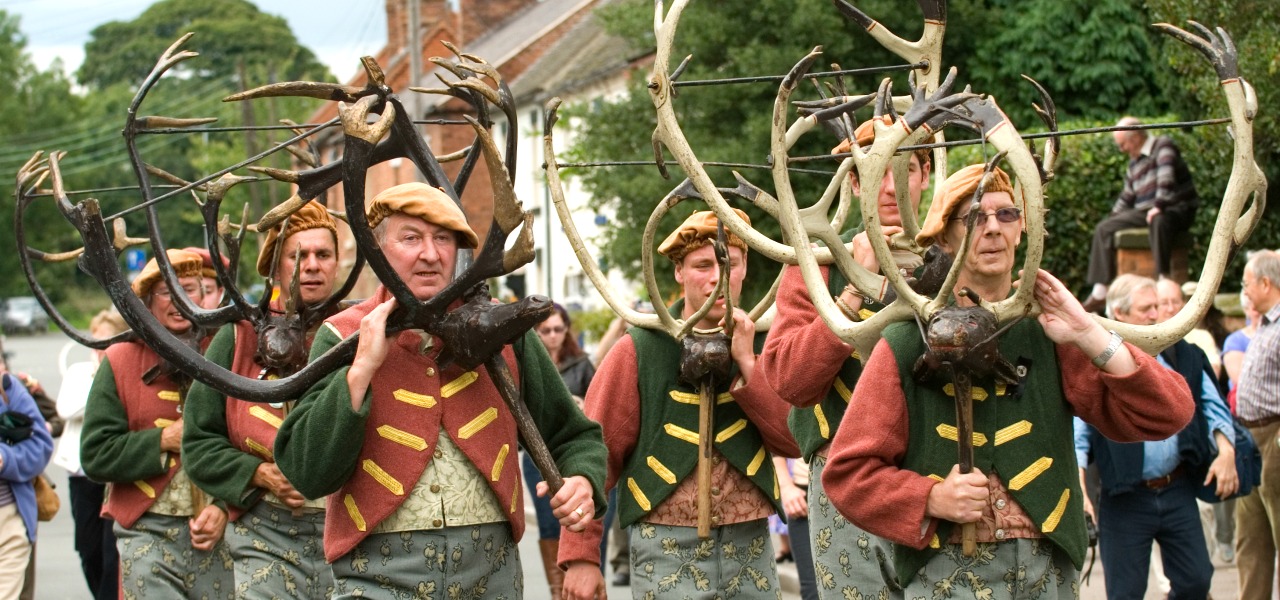
October
Whitby in Yorkshire, with its iconic abbey and connections to Dracula is the place to go on Halloween night. On the last weekend in October, the bi-annual Whitby Goth Weekend sees crowds of goths celebrating alternative style in Whitby. The streets are filled with homemade pumpkin lanterns, ‘trick or treaters' and people dressed as ghosts, witches and ghouls with many in Gothic Victorian dress. There are various sinister-themed events including ghost walks and horror film screenings. The roots of Halloween began some 2,000 years ago as a celebration of the ancient Celtic festival of Samhain and is still celebrated across the UK and beyond each year.
November
One of the most famous British events with strange origins is Bonfire Night, also known as Fireworks night. On 5th November crowds gather to watch fireworks light up the sky and then watch an effigy of Guy Fawkes burn. Guy Fawkes was the man arrested, as part of the group known as the Gunpowder Plot, for attempting to blow up Parliament in 1605, and people lit bonfires around London to celebrate the fact that King James I had survived the attempt on his life. Today the most famous Bonfire Night celebrations take place at Lewes East Sussex, where there is a torchlight procession before the lighting of a large bonfire.
Tar Barrel Racing is a strange old English custom thought to have originated shortly after the Gun Powder Plot of 1605. The race involves people running through the streets of the town of Ottery St. Mary in East Devon, carrying flaming wooden barrels of burning tar on their backs! The annual event takes place on 5th November and ends in a giant bonfire and carnival.
 December
December
Around midnight on New Year's Eve night, the streets of Stonehaven in Aberdeenshire, Scotland are lit up by the spectacle of a group of young men swinging flaming balls on ropes around their heads! The ceremony is thought to have started as a 19th-century ritual to purify the air and ward off evil spirits. The fireballs are packed in wire cages and attached to strong, five-foot-long wire ropes that are very safe. The event starts at 11pm with crowds gathering from 10.30pm and has to be seen to be believed!
Words by Kate Thompson.

 February
February

 December
December




